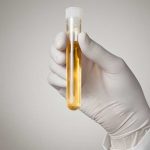- What Is A Methadone Clinic?
- Who Is Eligible For Methadone?
- Stages At A Methadone Clinic
- Benefits Of Methadone Maintenance
Methadone is a synthetic opioid used to treat opioid addiction. At a methadone clinic, a person addicted to opioids can receive methadone (and sometimes buprenorphine, Suboxone, or naltrexone) to give them a better chance at recovery.
What Is A Methadone Clinic?
A methadone clinic is a place for people to go to receive treatment for opioid addiction or opioid use disorder. This includes addiction to illicit drugs like heroin and prescription painkillers like morphine and Oxycontin. The primary treatment is known as methadone maintenance.
Methadone is itself an opioid, but it doesn’t have the same effects as the others. It can help people struggling with withdrawal symptoms due to opioid dependence and intense cravings.
To ensure all methadone clinics adhere to a certain standard, all clinics are state and federally regulated and must be accredited by the Substance Abuse and Mental Health Services Administration (SAMHSA).
Who Is Eligible For A Methadone Clinic?
When you first enter a methadone clinic, you will be assessed to determine if methadone treatment is right for you. To participate in methadone treatment, you must have an opioid addiction or have struggled with one for at least a year. To prove this, clinic staff look for:
- healthcare provider’s recommendation and referral describing the opioid addiction
- records of previous opioid addiction treatment received
- a notarized letter from a member of the clergy or a family member testifying to the individual’s opioid addiction
- arrest records for opioid possession/use
- confirmation letter from a parole officer
Women who are pregnant or individuals who have recently gotten out of prison are eligible for methadone treatment without meeting the one-year requirement, as are people who have received methadone treatment before.
Stages Of Treatment At A Methadone Clinic
When you enter into treatment at a methadone clinic, you will likely go through a number of treatment stages to ensure all your needs are met.
Assessment & Consultation
Before you receive treatment, you’ll first go through an extensive assessment including a physical and a drug test. The clinicians will also take your height and weight to determine the best dosage of methadone for you.
You’ll also receive a consultation where you talk about your history of addiction. If you have any mental health issues, this is the time to bring that up. You will then receive paperwork on policies and procedures and sign a consent form if you’re approved for treatment.
Stabilization
This stage of treatment is when you first start taking methadone. You’ll likely receive a dose of 10-30 mg of methadone for about three days. Then you’ll go back to your doctor to determine if the treatment is working. If not, the dose may be increased.
You’ll go back every three days until the dose is doing what you and your doctor want it to do.
Maintenance
Once you find the correct dose, you reach the maintenance stage. You will continue to take that dose of methadone for several months until you can stop taking opioids completely.
Some patients may receive methadone to take home with them, but that usually doesn’t occur until after 90 days of treatment. Normally, you’ll have to go to the clinic every day.
Benefits Of Methadone Maintenance Treatment
Someone participating in a methadone maintenance treatment program may experience some side effects from the methadone, but there are also many benefits including:
- reduced opioid withdrawal symptoms
- reduced cravings for opioids
- reduced pleasure from taking opioids
- ability to function normally without opioids
Other Services Methadone Clinics Provide
Beyond opioid treatment programs, the methadone clinic may also offer several other services to offer comprehensive treatment, including:
- examination: a complete physical by a physician or a health care professional under a physician’s supervision
- pregnancy services: provides prenatal care or a referral to an appropriate service
- counseling: provides adequate substance use counseling from a qualified professional, including cognitive-behavioral therapy (CBT) and group therapy
- drug testing: clinics must conduct at least eight random drug tests per year per patient
- medical detoxification: some clinics partner with detox programs where a patient is medically supervised while they go through withdrawal
If you or a loved one are struggling with drug addiction or another substance use disorder, Northeast Addiction Treatment Center is here to help. We offer a number of treatment services including medication-assisted treatment, outpatient services, and specialized therapy.
To find more information on the treatment options we provide, please call our helpline today.
Sources
Written by
Northeast Addition Editorial Team
©2024 Northeast Addition Center | All Rights Reserved
This page does not provide medical advice.












